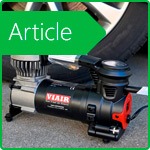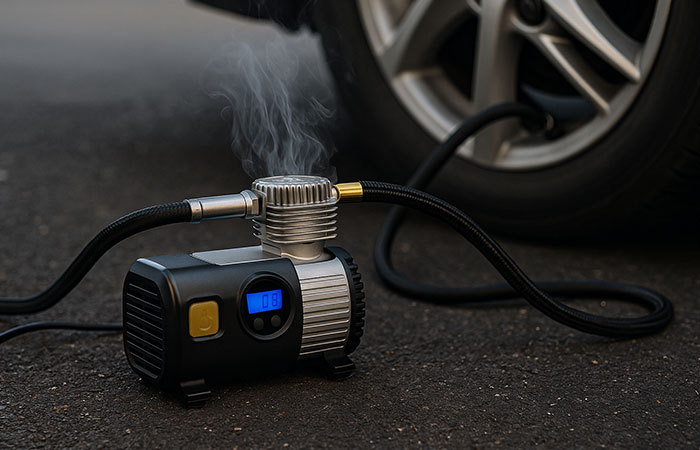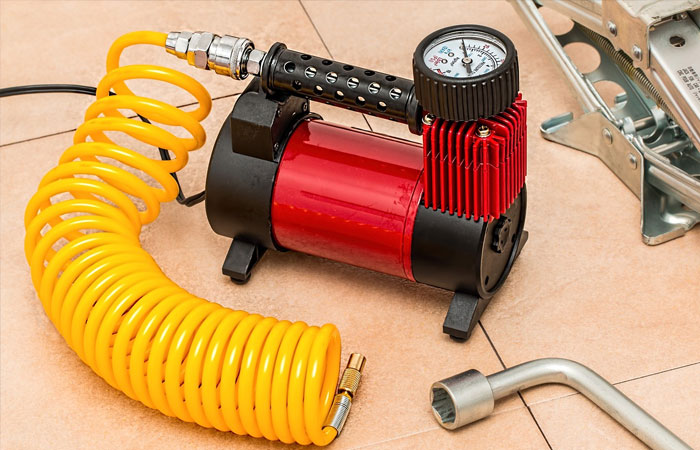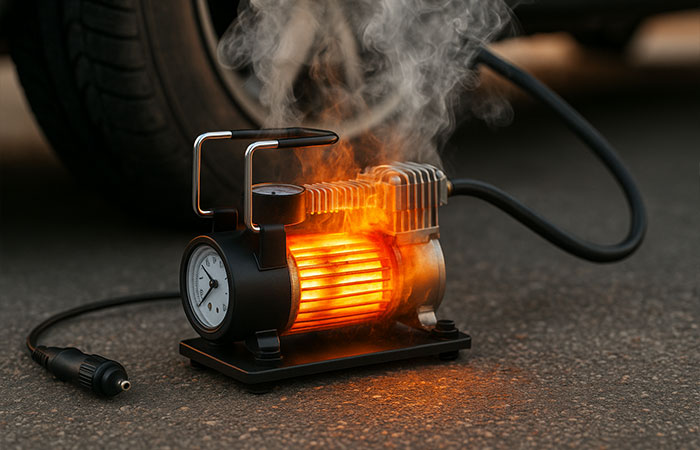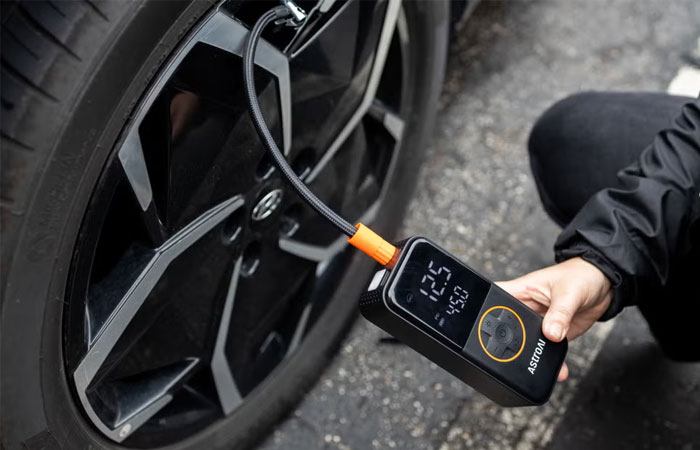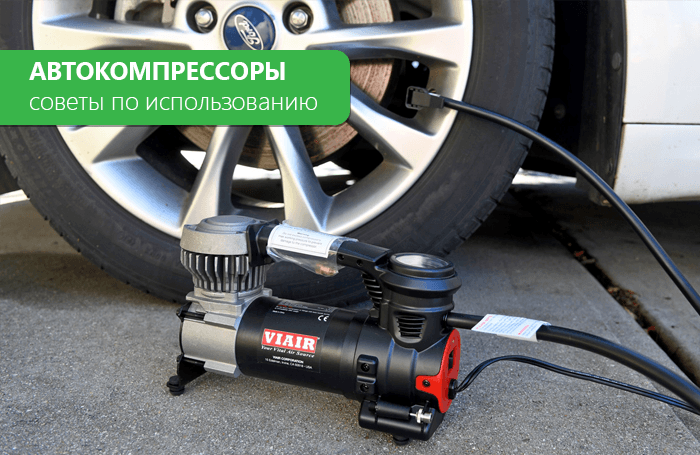Tire Puncture on the Road: How to Keep Driving with a Compressor and Sealant
A tire puncture on the road doesn’t always mean you need a tow truck. Even without a spare tire, modern tools allow you to reach the nearest repair shop — or even finish your trip. A sealant and an automotive compressor are a duo that can truly save the day. The key is knowing how to use them.
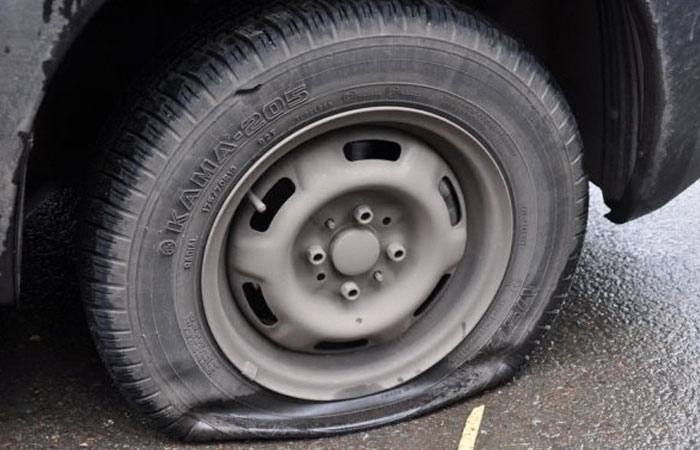
What happens during a puncture
Even a small puncture causes rapid air loss. Within seconds, pressure drops to zero, the tire flattens, and continued driving damages the sidewall. If you stop in time, the tire can be saved. But driving even 200–300 meters on a flat can result in full replacement.
What to do in the first few minutes
- 1. Stop on a flat surface and turn on your hazard lights.
- 2. Inspect the tire: if you see a nail or screw, don’t remove it.
- 3. Take out the sealant and compressor, and prepare them for use.
- 4. Shake the can and screw it onto the valve (or use the adapter).
- 5. Once the sealant is fully dispensed, inflate the tire using the compressor.
- 6. Drive slowly for 300–500 meters so the compound can spread evenly inside the tire.
After that, check the pressure again and top it off if needed.
Which sealant to choose
There are two types of sealants: pressurized cans and pouch-type. Pressurized sealants are quick and require no compressor but offer only temporary repair. Pouch-type sealants work more reliably but need a compressor for inflation. For long trips, it’s best to have both: a pressurized can for emergencies and a pouch for full repair.
Benefits of using a sealant and compressor combo
- No need to remove the wheel.
- The process takes 5–10 minutes.
- Drive up to 20–50 km to the nearest service center.
- Works even on dark highways or off-road.
- The compressor can be reused on other tires.
When sealant won’t help
— Sidewall punctures or tire blowouts cannot be repaired with sealant.
— Severe rim damage or deformation.
— If the tire has come off the rim — a tire change is required first.
In these cases, a compressor won’t help — only a tire change or roadside assistance will do.
Conclusion: a compressor and sealant are first aid for your tires
If you have a compressor and sealant in your trunk, a puncture is no longer a disaster. It’s a temporary but reliable fix to help you keep driving without panic. Just don’t try to “limp home” on a flat — act wisely and immediately.
-
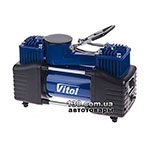 Tire inflator Vitol K-72Buy1989 ₴
Tire inflator Vitol K-72Buy1989 ₴ -
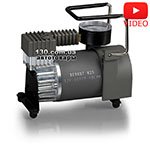 Tire inflator Berkut R15Buy2852 ₴
Tire inflator Berkut R15Buy2852 ₴ -
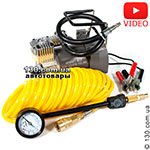 Tire inflator Berkut R17Buy4596 ₴ 4534 ₴
Tire inflator Berkut R17Buy4596 ₴ 4534 ₴ -
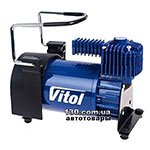 Tire inflator Vitol K-55Buy1299 ₴
Tire inflator Vitol K-55Buy1299 ₴


















